- California Assembly OKs highest minimum wage in nation
- S. Korea unveils first graphic cigarette warnings
- US joins with South Korea, Japan in bid to deter North Korea
- LPGA golfer Chun In-gee finally back in action
- S. Korea won’t be top seed in final World Cup qualification round
- US men’s soccer misses 2nd straight Olympics
- US back on track in qualifying with 4-0 win over Guatemala
- High-intensity workout injuries spawn cottage industry
- CDC expands range of Zika mosquitoes into parts of Northeast
- Who knew? ‘The Walking Dead’ is helping families connect
S. Korea’s political parties still polarized on history textbook row
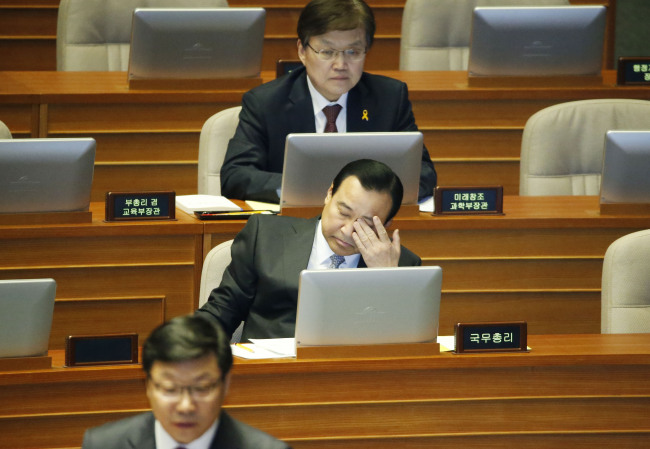
South Korea’s Prime Minister participates in the National Assembly. Rival political parties in the country are still very much at odds regarding state-issued history textbooks for students. (Yonhap)
SEOUL (Yonhap) — The National Assembly was polarized for the second day in a row Wednesday as the opposition continued to boycott parliamentary sessions in protest against the government’s decision to reintroduce state history textbooks.
On Tuesday, the government announced that it will revise the current textbook publication system so that secondary school students can learn Korean history with national textbooks starting in the 2017 school year. Lawmakers of the main opposition New Politics Alliance for Democracy (NPAD) have been staging outside rallies since then, boycotting all parliamentary meetings.
“State-authored textbooks should be scrapped,” Chairman Moon Jae-in said, asking the people to launch a nationwide campaign against the state textbooks.
The government made the announcement two days prior to the end of the period for collecting public opinion. The law stipulates that the government must give such notice in advance on policy changes.
“It is a clear illegal act for the government to make the announcement before an (end to the) obligatory 20-day period to canvass public opinion,” said Moon.
The government argued that many of the private history textbooks now used by middle and high schools try to glorify North Korea by discrediting South Korea.
The ruling Saenuri Party, meanwhile, denounced the NPAD legislators for continuing an ideological war over the textbooks and abandoning their jobs.
“The people will not forgive the lawmakers who do not show up for work and continue to boycott,” Chairman Kim Moo-sung said.
Kim further argued that opposition lawmakers should return and show efforts to ensure that the parliament can pass a set of bills meant to reform the labor sector as well as other bills designed to revitalize the country’s economy.







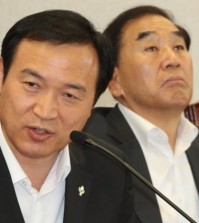
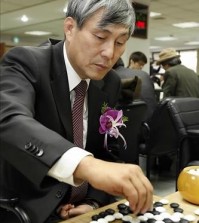
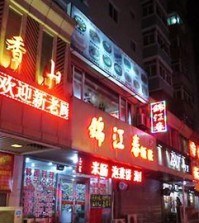
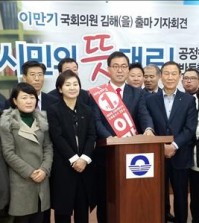

![일본 사도광산 [서경덕 교수 제공. 재판매 및 DB 금지]](http://www.koreatimesus.com/wp-content/uploads/2024/07/PYH2024072610800050400_P4-copy-120x134.jpg)


